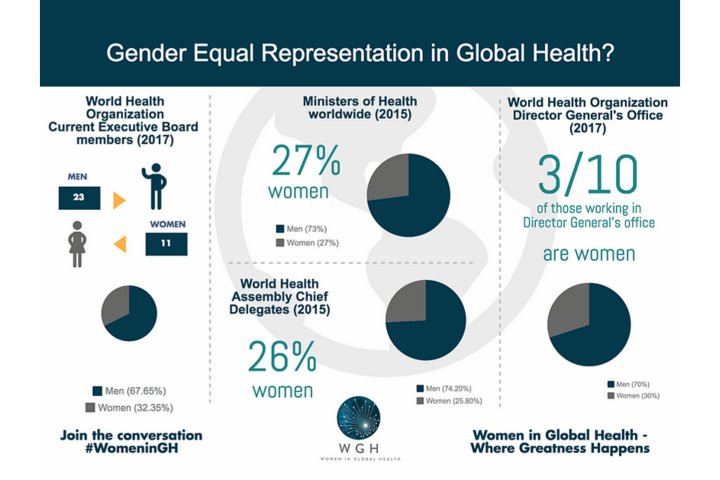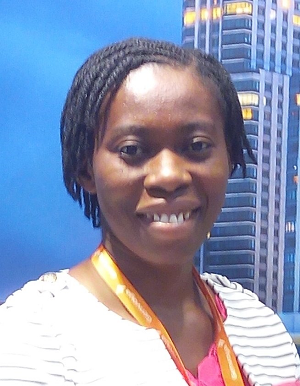IWD 2021: Time to challenge gender discrimination in global health
On 8 March, RSTMH is celebrating International Women’s Day 2021, which this year is focused on the theme #ChooseToChallenge. This important concept states that a “challenged world is an alert world” and rightly states that we are all responsible for our own thoughts and action.
Arguably, the events of the last 12 months have made us more alert than ever before, with the COVID-19 pandemic bringing to the fore serious inequalities linked to gender.
A UN Women report from 2020 states that “while men reportedly have a higher fatality rate, women and girls are especially hurt by the resulting economic and social fallout. Women are losing their livelihoods faster because they are more exposed to hard-hit economic sectors. According to a new analysis commissioned by UN Women and UNDP, by 2021 around 435 million women and girls will be living on less than $1.90 a day — including 47 million pushed into poverty as a result of COVID-19.”
On the other hand, Tamar Ghosh, RSTMH Chief Executive said:
"There are many women leading the way through the COVID-19 pandemic, such as Dr Özlem Türeci, Dr Soumya Swaminathan, Ramida Juengpaisal, Professor Sarah Gilbert, Dr Anggia Prasetyoputri and Somaya Faruqi."
In 2019 the WHO Health Workforce Working paper found that overall an average gender pay gap of around 28% exists in the health workforce. Once occupation and working hours are accounted for, the gender pay gap is 11%.
And at "Gender at the World Health Organization" in 2017, Women in Global Health uncovered worrying statistics when asking:

Progress for women in global health
However, we have also seen great progress. Women’s achievements and vision have played and continue to play a crucial role in global health. Slowly but surely, those in power are being held accountable, knowledge on gender is being more widely disseminated, policies are being implemented and we now know from the WHO that women’s representation in the most highly paid health occupations has been improving steadily since 2000.
Tamar Ghosh, RSTMH Chief Executive said:
"As well as those at the forefront of innovations we must also acknowledge the millions of women who are working daily in roles to improve health such as in medicine, nursing, community health work, mental health and well-being and those who are caring for family members and their communities throughout the pandemic. We know that the burden of care in global health falls mainly on women, both formally and informally in family and community settings and we send them our thanks and support.”
RSTMH’s effort

Our strategy at RSTMH recognises the importance of underlying social, structural, economic and environmental factors that determine health around the globe.
Using the UN SDGs as a framework, the Society recognises its responsibility to encourage, promote and support women in global health through our activities, whether they are clinicians, environmentalists, researchers, students, veterinarians, policymakers or NGO workers, we must support them and choose to challenge gender inequality.
In September 2020, we were pleased to welcome both a female President and President-elect. In addition, our Team consists of over 80% women (including a female CEO) and over 60% of our Trustees are women. We are proud of the gender representation we have achieved at the RSTMH governance and staff level, and hope to continue this representation in the coming years. We are also proud to partner with many other organisations that are led by women.
We actively encourage women to engage in all our activities, including our journals, events, medals and awards and small grants. Indeed, in summer 2020, RSTMH awarded 58 small grants to female early careers researchers, from Nigeria to St Kitts; Argentina to Sri Lanka.
We spoke to one of them, Chinenye Afonne, an NIHR grantee whose research focuses on universal health coverage and whether NTD programmes can be integrated into primary healthcare in Nigeria and Ghana.
She provided great insight on women in the sciences and ideas on how to challenge gender discrimination:
Promotion and advocacy
“Early-career women scientists might be motivated to perform better when they consider that other women have succeeded in the same paths. Their success stories challenge us never to give up."
Women researchers and academics should have their successes more widely promoted. We must challenge traditionally male-dominated sectors, such as STEM, and push forward innovative and motivated women.
We need to educate women and girls on existing female actors. Greater visibility will create more female leads, and more gender-diverse role models will drive future generations to achieve similar goals and success.
Gender equality is not only a basic human right, but its achievement has enormous ramifications. Empowering women fuels new ideas, productivity and growth. We simply cannot solve the current global health problems without increasing and supporting a space for greater diversity within the sector.
Fighting stereotypes
“... Be undaunted and unrelenting... reject the stereotype views that a woman cannot achieve or reach the zenith of her career because she is a woman.”
Gender stereotypes in health, and more generally, have far-reaching societal influence and effect to the lives of both, women and men. They limit people’s freedom and choices. Leading to discrimination, damaging progress and causing unnecessary harm. We all must challenge the set of ideas we are told about women and men, and their part in health systems.
Women leaders
“Encourage women to aspire towards leadership and research.”
We must continue encouraging women and girls to aim for the top positions. Only with balanced representation can real change be made for all.
Happy International Women’s Day
#ChooseToChallenge #IWD2021
If you want to read more on gender and how it intersects with global health and tropical medicine, please check out some of the following resources and references:
- Creation of the gender-equitable school index for secondary schools using principal components analysis
- Female global health leadership: data-driven approaches to close the gap
- Gender-based differences in water, sanitation and hygiene-related diarrheal disease and helminthic infections: a systematic review and meta-analysis
- Gender equality in science, medicine, and global health: where are we at and why does it matter?
- Gender equity in mass drug administration for neglected tropical diseases: data from 16 countries
- Promoting gender, equity, human rights and ethnic equality in neglected tropical disease programmes
- Mind the 100 year gap
- GOV.UK: New data on gender pay gap in medicine
- International Women's Day 2021
- UN Sustainable Development Goals: Goal 5
- UN Women data bank
- ONS key worker data
